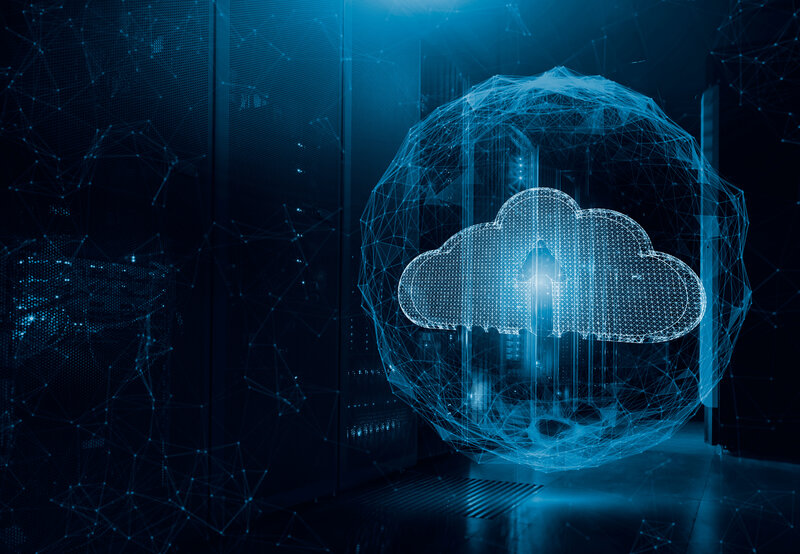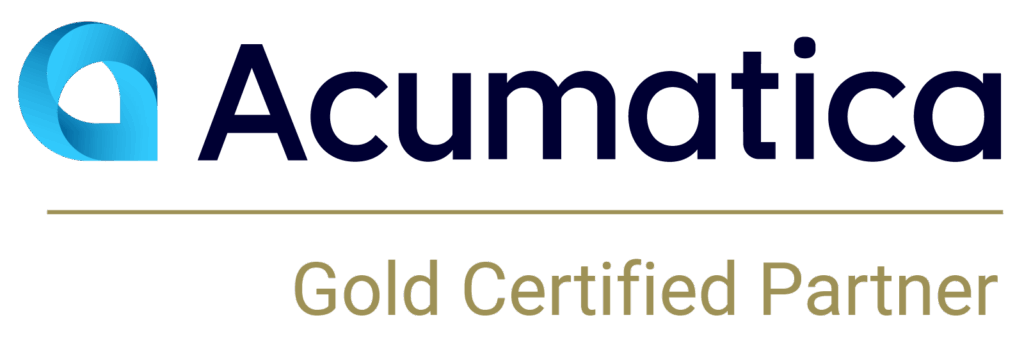As a small or midsized business owner, are you worried about the security of your business data? You should be. 82% of ransomware attacks in 2021 were against companies with fewer than 1,000 employees. 37% of companies hit by ransomware had fewer than 100 employees. Cyberattacks are becoming increasingly common, sophisticated, and damaging. While it’s impossible to prevent every attack, small and mid-sized businesses can and should take every precaution to detect and prevent attacks and mitigate their impact. Increasingly, companies are implementing cloud ERP, such as Acumatica, to improve the security of their business data. Here are our top six ways cloud ERP protects your business data.
- Encryption serves as the secret handshake
Cloud ERP systems use advanced encryption techniques to protect your data during storage and transmission. Encryption means that even if someone intercepts your data, they cannot read it without the proper decryption key.
Acumatica encrypts all connectivity through the web browser and API integrations to ensure the integrity of data packets during transmission. In addition, all calculations, validations, and reports are processed on Acumatica’s servers rather than your computer or browser. That protects your organization from hackers seeking to spy on how your system works, better protecting your data.
- We’ll say it again. Redundancy is critical.
Cloud ERP systems typically have multiple data centers and replicate your data across multiple locations. Why is this important? It means that if one data center goes down, you can still access your vital business data.
Acumatica is hosted on Amazon Web Services (AWS), the world’s largest cloud services provider. At last count, Amazon had more than 100 data centers worldwide. Hard to get more redundant than that.
- Automated backups provide the belt and the suspenders
Cloud ERP systems usually have automated backup processes that run regularly to ensure your data is continually backed up.
Acumatica provides two methods for backing up and restoring your instance: automated backups and database snapshots.
- Acumatica performs continuous automated backups of your data. If needed, you can request a copy of your data (for a fee) or subscribe to an optional backup access service with an annual subscription fee.
- Acumatica also comes with a database snapshot feature, which allows you to take snapshots of your company and restore them later. While convenient and instantly available, since each snapshot is a complete copy of your database, your snapshots could quickly add up to the total storage you have subscribed to.
- Keeping out in front of the cyber villains
Cloud ERP vendors regularly release security updates and patches to address any application vulnerabilities. Since the vendors automatically apply the updates to your system, you’re better assured that your data is protected against the latest threats.
Acumatica has a team dedicated to patching and updating. Fixes are implemented immediately, and there is nothing for you to install and no disruption to your business. Maintaining this level of compliance and security is extremely difficult (dare we say nigh-impossible) with on-premises solutions.
- Securing the keys to the kingdom
Cloud ERP systems have robust access controls that restrict access to your data based on user roles and permissions. You control the access, meaning only authorized users can access your data, which reduces the risk of data breaches.
Acumatica’s access controls are a unique blend of strength and simplicity—meaning they’re tough to break yet easy to configure. Users belong to customized task-based roles that you define. You can assign each role access to a unique combination of suites, modules, forms, etc. You can also create Restriction Groups to limit users’ access to specific general ledger accounts, vendors, and customers.
In addition, administrators can set requirements for password complexity and change frequency. You can also implement multifactor authentication in Acumatica ERP using Acumatica’s single sign-on (SSO), which supports Microsoft, Google, and OneLogin multifactor authentication providers.
- Proof you’re following the rules
Many Cloud ERP vendors promote their compliance with industry-specific regulations and standards such as General Data Protection Regulation (GDPR), Health Insurance Portability and Accountability Act (HIPAA), and Payment Card Industry Data Security Standard (PCI DSS) — each of which has a data security component. If your company must demonstrate your compliance with one of these standards, you’ll know how important this is.
Acumatica complies with HIPAA, SOC 3, FEDRAMP, FIPS 140-2, GDPR, and other domestic and international compliance mandates. In addition, Acumatica partners with integrated payment processing providers who are 100% PCI DSS compliant.
Cloud ERP applications like Acumatica incorporate world-class data security, access controls, redundancy, and data privacy standards to give your organization confidence in an uncertain world. Read more about how Acumatica protects your business in Why Your Data is Safest in a Cloud ERP System and 3 Ways ERP Software Can Improve Your Business’s Security. Then, contact our team with your questions or to see Acumatica in action.



